U.S. Auto Brand Sales Results – March 2015 YTD: Not As Bad As Expected
An anticipated 1% year-over-year decline in U.S. auto sales in March 2015, a slightly shorter sales month than March 2014, failed to materialize as a number of auto brands reported significant improvements and most decreases were slight. As a result, U.S. auto sales actually improved slightly last month and rose nearly 6% in the first-quarter of 2015.
Premium auto brands left an especially strong footprint on the improved March figures. Audi, BMW, Lexus, and Mercedes-Benz – the four top-selling luxury brands in March – posted 20%, 7%, 9%, and 9% gains, respectively.
Meanwhile, at the top of the heap, Toyota easily outsold Chevrolet to claim the second spot behind Ford, which said a retail sales increase was counteracted by a sharp fleet sales decline.
AutomakerMarch 2015march 2014% Change2015 YTD2014 YTD% ChangeAcura 14,67015,580-5.8%39,64437,9484.5%Alfa Romeo 73——217——Audi 17,10214,24620.0%40,09835,22813.8%BMW 34,31032,1076.9%78,49272,3778.4%Buick 20,52620,4280.5%50,49752,898-4.5%Cadillac 13,75614,765-6.8%37,17539,588-6.1%Chevrolet 173,886179,681-3.2%476,556452,6835.3%Chrysler 30,03826,14014.9%81,933 72,48313.0%Dodge 46,04960,575-24.0%123,511145,224-15.0%Fiat4,4944,738 -5.1%11,03811,425-3.4%Ford 226,091234,448-3.6%570,422558,6572.1%GMC 41,70741,1731.3%119,811104,46814.7%Honda 111,623117,738-5.2%294,299287,4062.4%Hyundai 75,019 67,005 12.0%172,029160,013 7.5%Infiniti 12,52512,4940.2%33,84231,2218.4%Jaguar 1,6601,816-8.6%43364,715-8.0%Jeep 71,58457,98323.5%178,749145,83922.6%Kia 58,77154,7777.3% 141,100133,0066.1%Land Rover 6,7784,39954.1%16,97613,07929.8%Lexus 31,05428,5938.6%77,18065,08518.6%Lincoln 8,6958,969-3.1%21,47821,603-0.6%Maserati 9969633.4%1,9292,368-18.5%Mazda 32,12334,903-8.0%78,04478,057-0.02%Mercedes-Benz 29,92127,401 9.2% 78,156 72,614 7.6%Mercedes-Benz Sprinter 2,3791,915 24.2% 5,559 4,624 20.2%Total Mercedes-Benz 32,300 29,316 10.2%83,715 77,238 8.4%Mini 5,8293,65559.5%12,7778,65747.6%Mitsubishi 9,7648,9968.5%23,79019,84019.9%Nissan 132,560136,642-3.0%333,786323,7453.1%Porsche 4,2913,808 12.7%11,43010,13612.8%Ram 45,02344,4791.2%110,406100,9939.3%Scion 4,424 5,917-25.2%11,97814,457-17.1%Smart 583775-24.8%1,5332,237-31.5%Subaru 49,11144,47910.4%131,281112,38816.8%Toyota 190,481180,8385.3%486,462441,45510.2%Volkswagen 30,02536,717-18.2%79,23987,323-9.3%Volvo 5,9165,9150.02%13,72213,6980.2%————— ——BMW-Mini 40,13935,76212.2%91,26981,03412.6%FCA/Chrysler Group 197,261193,9151.7%505,854475,9646.3%Daimler32,88330,0919.3%85,24879,4757.3%Ford Motor Company 234,786243,417-3.5% 591,900580,2602.0%General Motors 249,875256,047-2.4%684,039649,6375.3%Honda Motor Company 126,293133,318-5.3%333,943 325,3542.6%Hyundai-Kia 133,790121,7829.9%313,129293,0196.9%Jaguar-Land Rover 8,4386,21535.8%21,312 17,79419.8%Nissan Motor Company 145,085149,136-2.7%367,628354,9663.6%Toyota Motor Corporation 225,959215,3484.9%575,620 520,99710.5%Volkswagen Group * 57,63855,051 4.7% 131,279132,870-1.2%———————Industry Total **1,545,710 1,537,282 0.5% 3,954,946 3,744,021 5.6%* Volkswagen Group includes sales figures for Audi, Bentley, Porsche, and Volkswagen brands.
** Industry total takes into account Automotive News estimates for brands such as Tesla (1200 March units) and other low-volume, high-priced manufacturers.
Timothy Cain is the founder of GoodCarBadCar.net, which obsesses over the free and frequent publication of U.S. and Canadian auto sales figures.
More by Timothy Cain
Latest Car Reviews
Read moreLatest Product Reviews
Read moreRecent Comments
- Carson D Just don't be the whistleblower who reports on the falsification of safety data. That's a deadly profession.
- Carson D I'd have responded sooner, but my computer locked up and I had to reboot it.
- Todd In Canada Mazda has a 3 year bumper to bumper & 5 year unlimited mileage drivetrain warranty. Mazdas are a DIY dream of high school auto mechanics 101 easy to work on reliable simplicity. IMO the Mazda is way better looking.
- Tane94 Blue Mini, love Minis because it's total custom ordering and the S has the BMW turbo engine.
- AZFelix What could possibly go wrong with putting your life in the robotic hands of precision crafted and expertly programmed machinery?



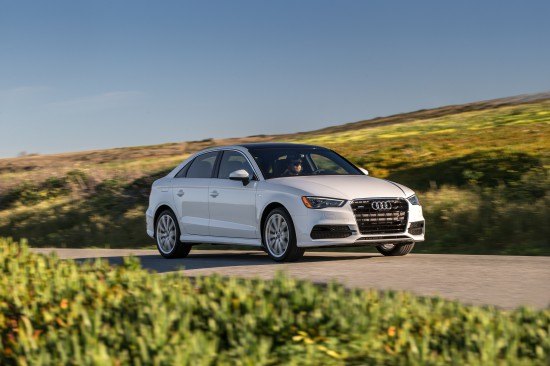















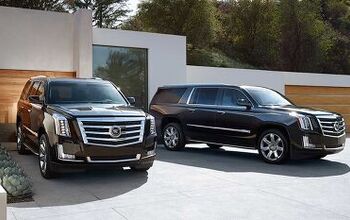
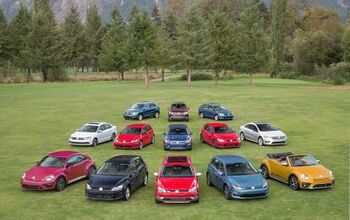
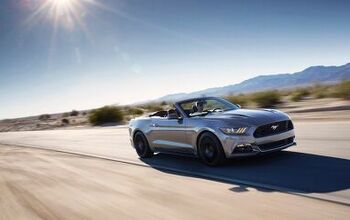
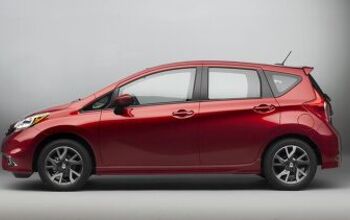











Comments
Join the conversation
Ok, I'll ask the dumb question--why is March 2015 a shorter sales month than March 2014? I'd first thought that it was because of Sundays, since in most places Sundays aren't counted as sales days; both March 2014 and 2015 have 5 Sundays. What makes the difference in the sales months? And, if March 2015 is a shorter month, does that also make the YTD figures suspect? (YTD covers from 1/1 of each year, right? Were either January or February also "short months" in either year?
None of this makes any difference unless you consider the average transaction price. Most brands are attempting to do what Cadillac is doing. I am not as surprised as some people are that Cadillac's sales have declined. That was intentional. The average transaction price is considerably higher, and they are getting more affluent customers, and much fewer entry level customers. None of the information above matters without knowing if the overall price is increasing or not.